In a recent panel discussion about the transformative power of Shakespeare, George Drance, SJ, speaks of how Shakespeare grappled with the conflicts of his day as he worked with language, hammering it into form. He sees this process as a metaphor for teaching us “What the hope of form is for us; a place to put our energy, a place to put our hopes, to put our dreams . . .”
Drance tells the story of a teacher who is working with a young actress. The student is struggling with unfamiliar language and complains, “But, we don’t talk like that . . . ” The teacher responds, “We would if we could.” Shakespeare teaches us, says Drance, to speak in a way that we would if we could.
When I imagine form as a receptacle of hope, my craft takes on a new dimension. Comments welcome.
(Sponsored by Elements Theatre Company, How Shakespeare Humanizes Our Culture: The Transforming Power of His Work took place February 7th at The Players, New York, NY. It can be viewed in its entirety at http://elementstheatre.org)

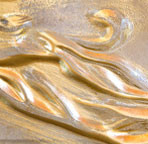
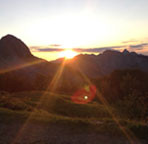
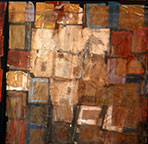
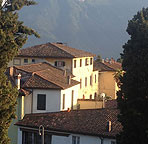
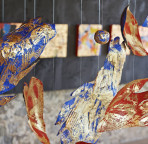
Comment on “The Hope of Form”
Deep within the human heart we all desire and long for a place, a “form” if you will, to place our energies, our hopes and our dreams. If we are lucky enough (or should I say “determined”) we can do this…Often we stumble on to it, like tripping over a stone in our path, falling down and looking up, like St. Paul, then our eyes are open and we see “The Light”.
As I see myself as being ” made in the image and likeness of God,” (Genesis 1:26)
and therefore so is all humanity, I realise my contribution and my form to life on earth is to reveal God’s likeness more and more. I therefore become the gift of God to you and you become the gift of God to me.
If my form is external as in writing, painting, sculpting, accounting, nursing, shoe making, boat building or anything that contributes to life on earth, as long as it is done with love and kindness then the hope is that beauty, goodness and truth will shine through and reach out to benefit us all.
This ideal does not deny a place for the negative emotions such as anger, resentment, jealousy, bitterness and so on. Creatively expressed in our “forms,” these might/will bring about the changes and/or healings that are sometimes required both within and outside ourselves.
If my form is a body unable to perform very much, a body unable to contribute but just exists, then my form becomes the receptacle to receive the love and kindness that comes from external sources and a good place for putting those creative energies others might/will offer.
If we believe we really are God’s gift to each other, our craft’s new dimension might/will have it’s source of inspiration, strength, healing, giftedness and beauty in God’s power.
Dear Kathleen, I really like the part in your post about the person whose body is unable to perform very much, a body unable to contribute, but just exists, but becomes a receptacle to receive the love and kindness from external sources. It should give a lot of people hope that they are purposeful in the their “Form” and even enjoy a new dimension in the source of His love. This was excellent!
What a fine way of putting it…. “a receptacle of hope.” I was fortunate enough to learn this lesson many years ago when a fellow student in high school became impatient with my affected nihilism and told me “you keep submitting these poems to the literary magazine…if you really believed there was no hope you wouldn’t make anything.” She was right, of course. The outward form disclosed the inner hope. I once tried to explain what I do by saying an odd sort of happiness came to me in the studio. I suppose I could have said an odd sort joy as the form receives the hope I myself have received.
I believe that nobody likes to be lied to but not everyone wants to know the truth. To shift from illusion to truth can be quite painful if one is ill equipped to receive the truth. When reading great works of art, such as Shakespeare, the truth, I believe, is revealed to us at the subconscious level, a level where each of us share similar stories. When we are ready for the truth, the truth will be revealed. I further believe that God is love and truth. It is no easier to explain what truth is than to explain what love is. Without the two, love and truth, there is no humanity.